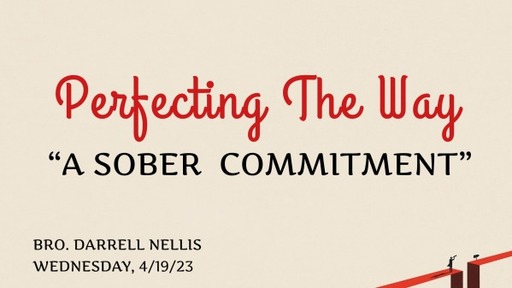A Sober Commitment

1. Gr. nēphō with its derivatives means to be free from drunkenness and every form of excess; hence to be calm, mild, collected, self-controlled, and even-tempered in mind and action
Originally in classical Greek the nḗphō word-group referred to one who was completely unaffected by wine, i.e., one who avoided intoxication
but the word-group later indicated a sober manner of living demonstrated by self-control. In the this word-group is also used to express self-control, i.e., the antithesis of all mental fuzziness (1 Thess. 5:6, 8; cf. 2 Tim. 4:5). The verb Gk. né̄phō especially refers to watchfulness in regard to one’s responsibility to God and to self-control (1 Pet. 1:13; 4:7; 5:8). In the Hellenistic world the word-group (e.g., nēphálios) described a virtue expected of public servants; it was also expected of those in church leadership (1 Tim. 3:2, 11; Tit. 2:2). In the NT this word-group focuses not on the sobriety achieved by not drinking wine, but rather it refers figuratively to the clarity of mind and self-control for Christian service